Blotter filters
Ethnographic research
I spent two weeks in an ethnographic study with various traders on the floor. I sketched out their workspace (screen and physical) noted their tasks and pain points throughout over a 1-3hr session with each person.
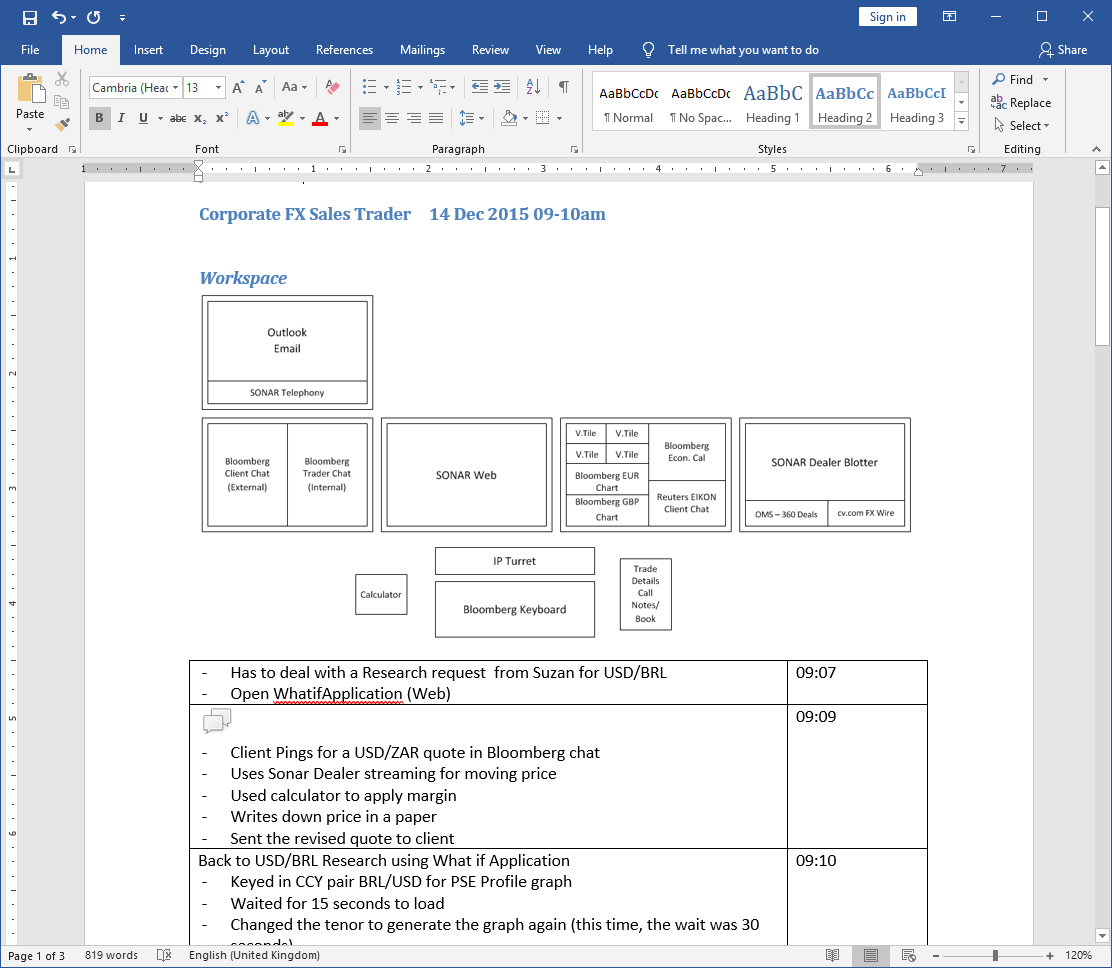
The most important thing I learned was to be respectful of the traders time and expertise, once or twice a session was re-booked or cut short due to an unexpected uptake in their workload. Occasionally traders on the floor will refuse your request for even a quick word, they are not rude, they are just that busy sometimes.
After analyzing the research that covered FX sales, the FX options desk and some back office 'warehouse' desks. I designed a feature that would help all of them do their jobs more easily. People had few complaints about the trade pricing or execution but most their pain points centered around their post-trade workflow.
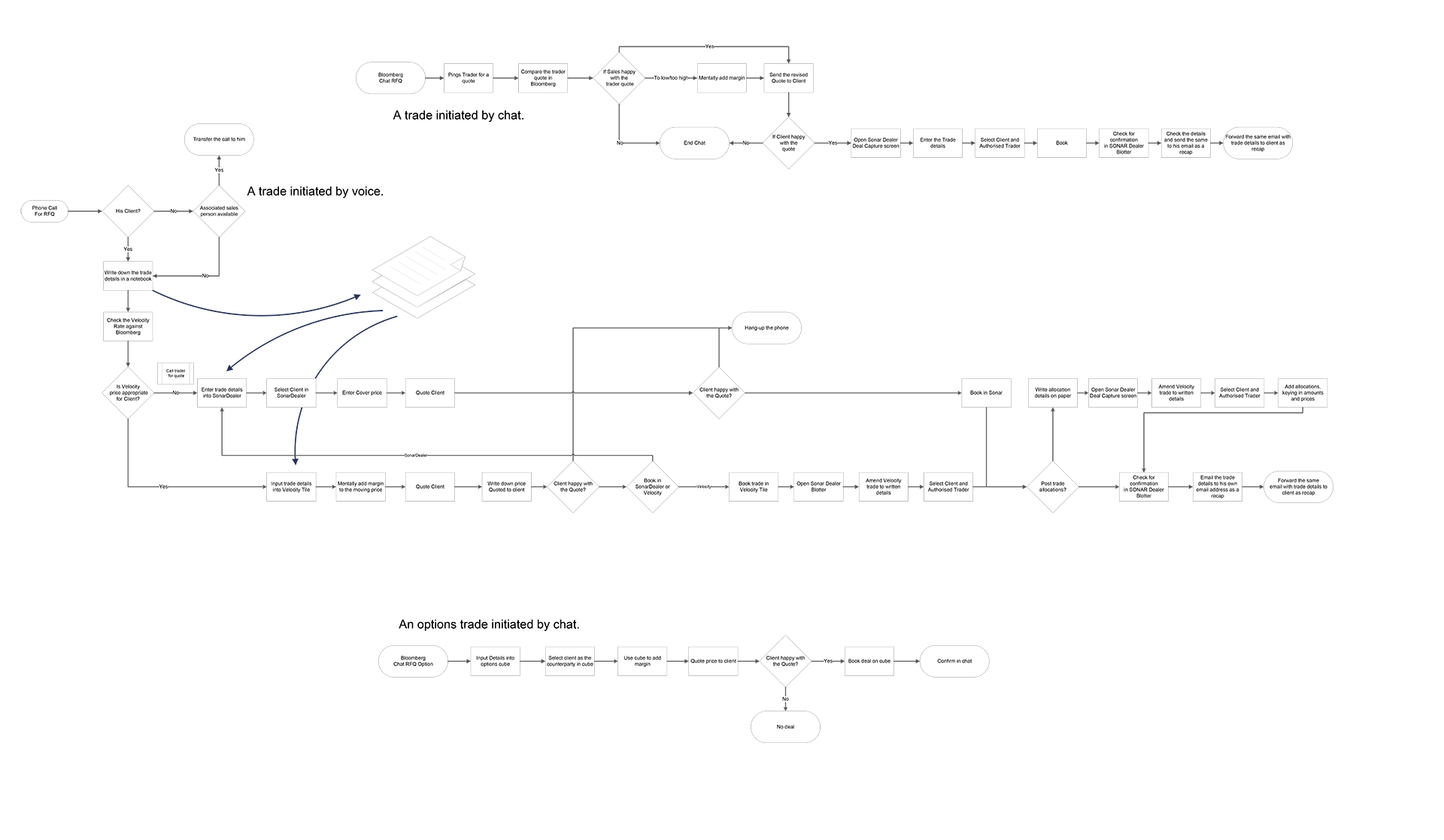
Once trades are submitted they go into a big table known in the industry as a blotter. This is where everyone's common difficulties came from.
The difficulties where nuanced and hard for the traders to describe exactly what the issues were. It was a feeling of general clunkyness and distrust that they were looking at the right thing.
To find out more about the blotter I did a 'heuristic review' (taking a methodical walkthrough the interface and checking its adherence to design best practices) and a short usability test with 5 people. I compiled a report of my findings and used to it inform the design of a new one.
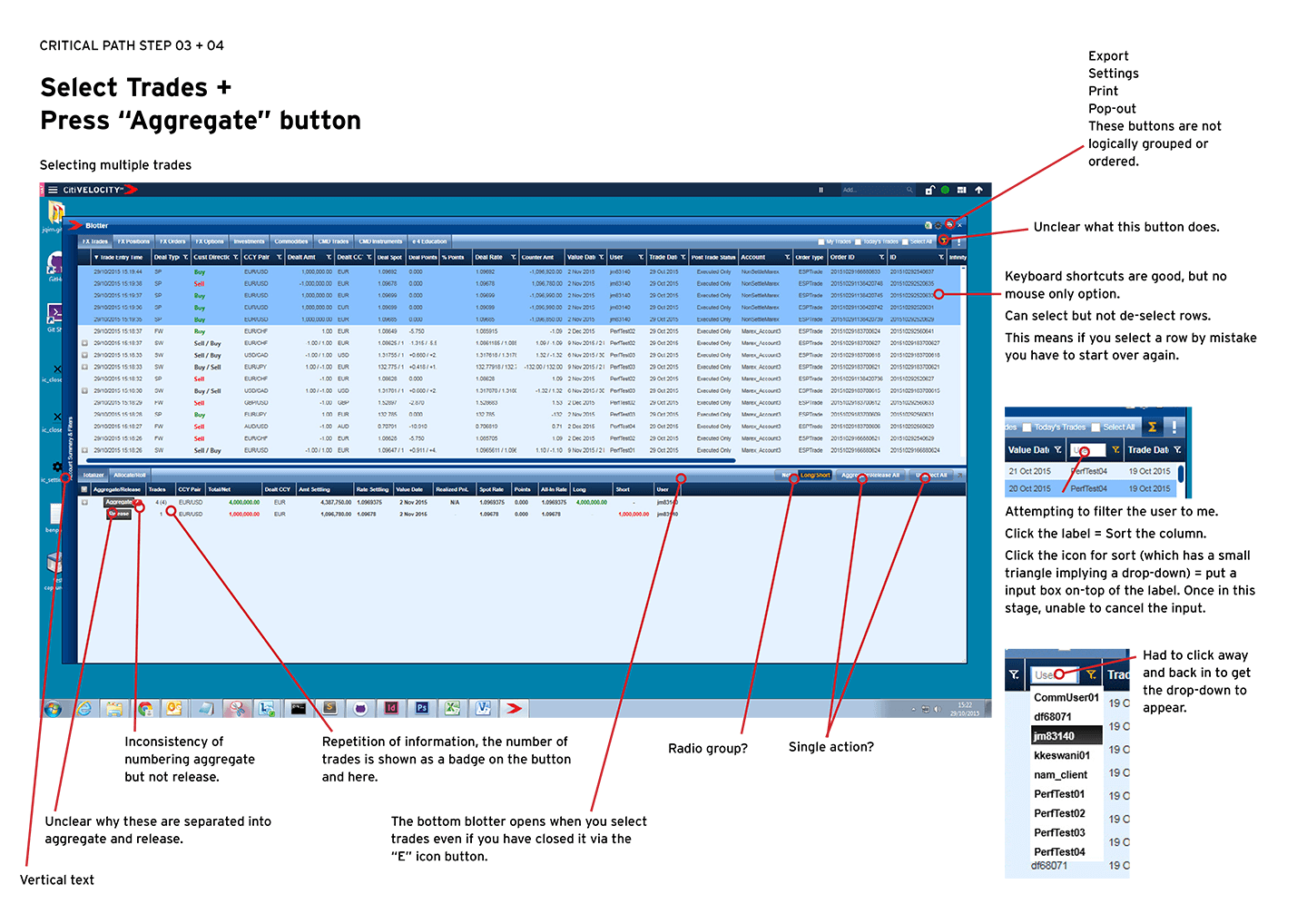
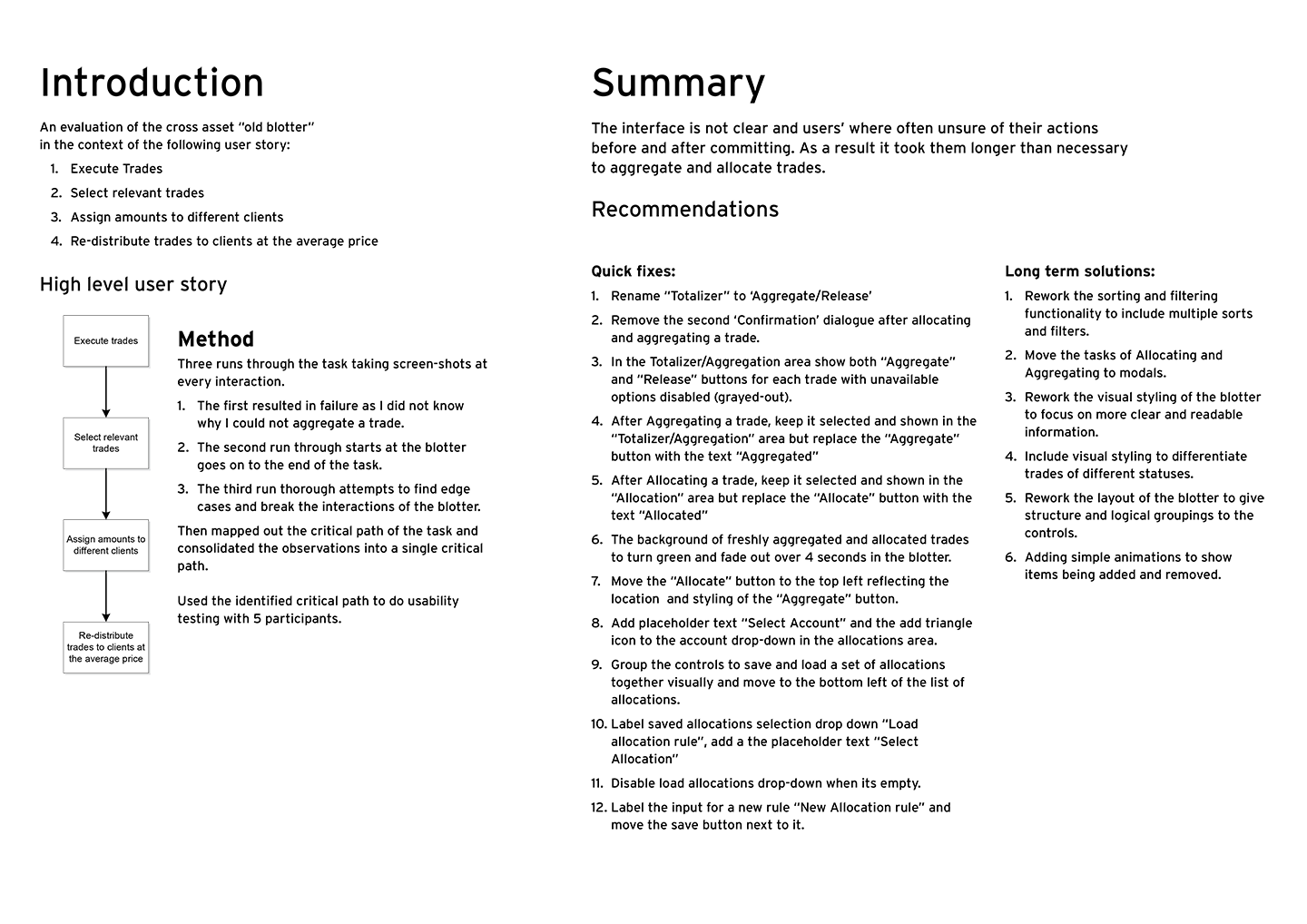
One of the issues with the blotter was the traders found it hard to configure the data to only show them what was relevant to them. This meant they had to look at lots of irrelevant data just to check if it needed their attention.
I designed a comprehensive sorting and filtering system with the ability to save, load and share sets of filters.
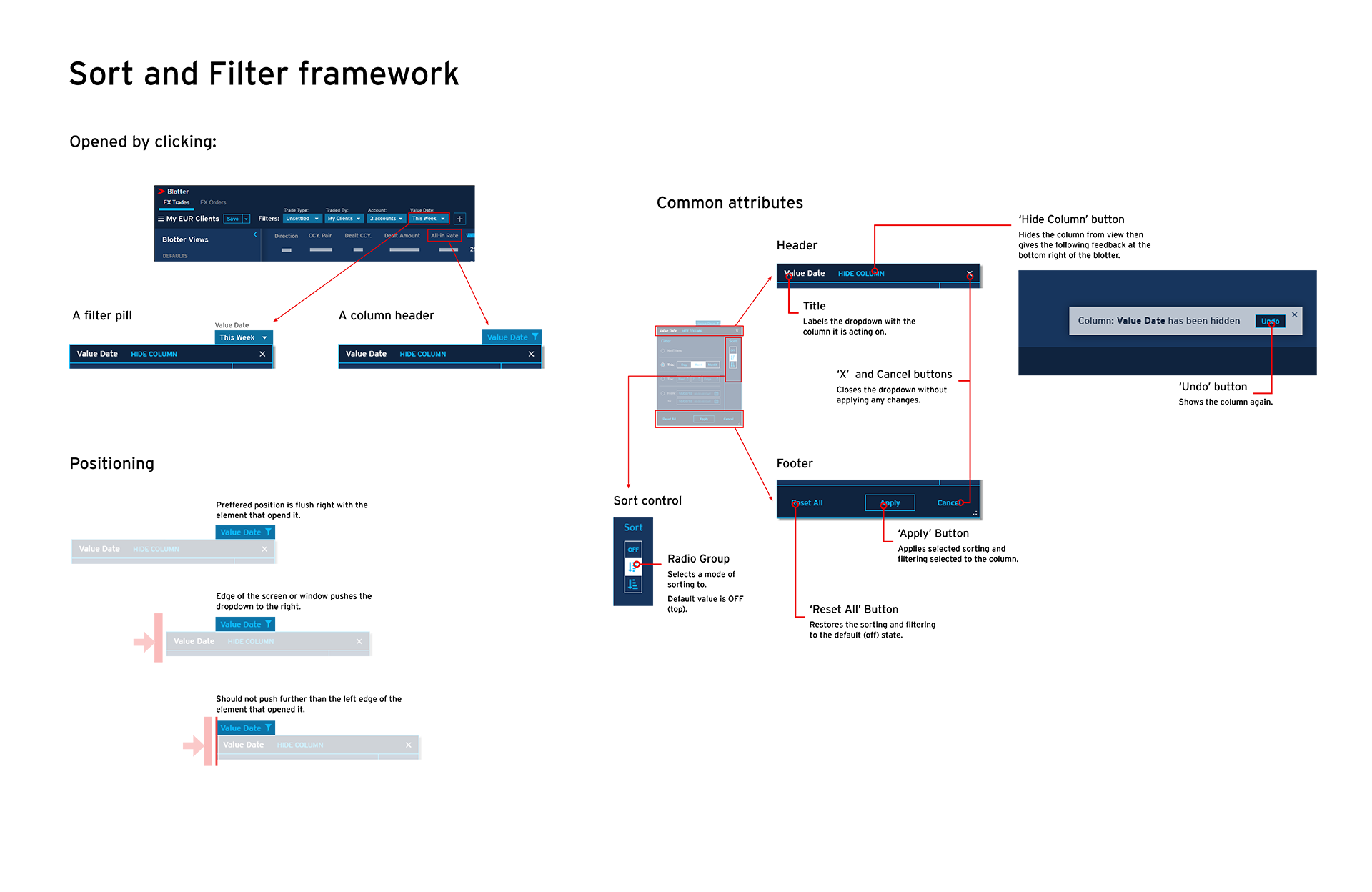
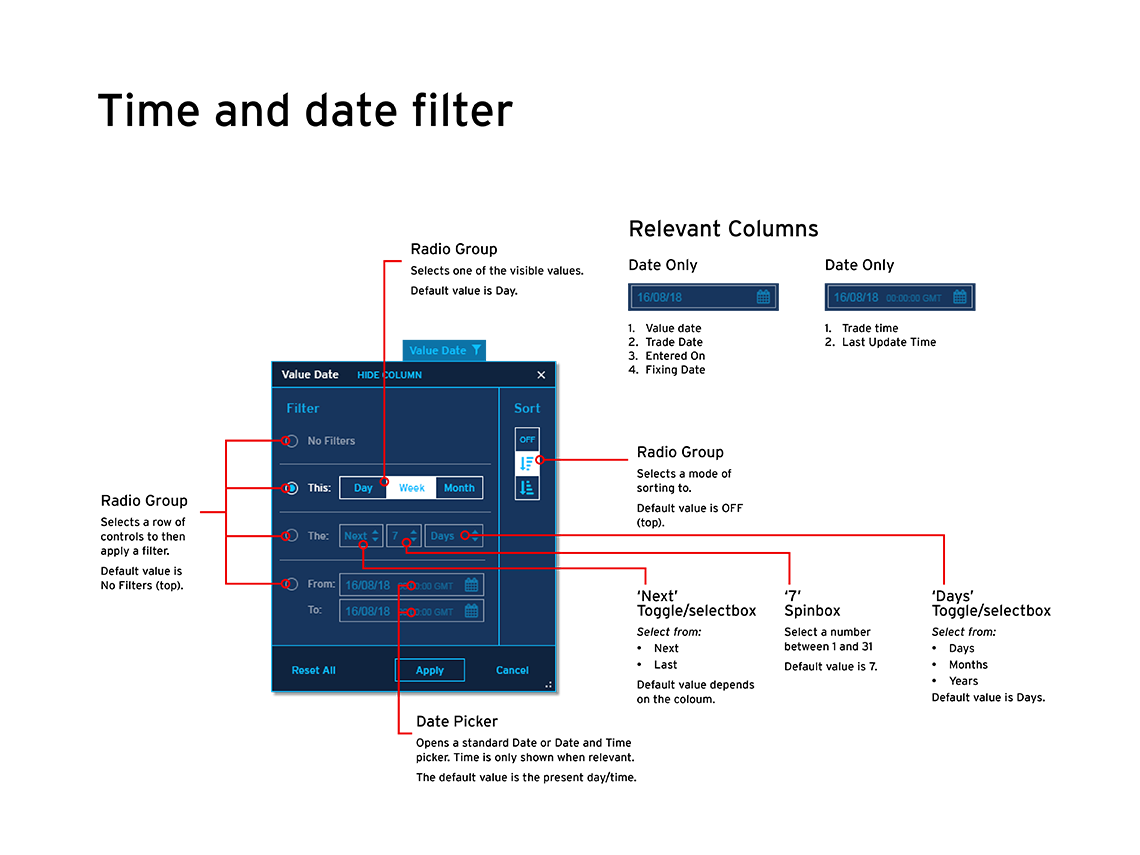
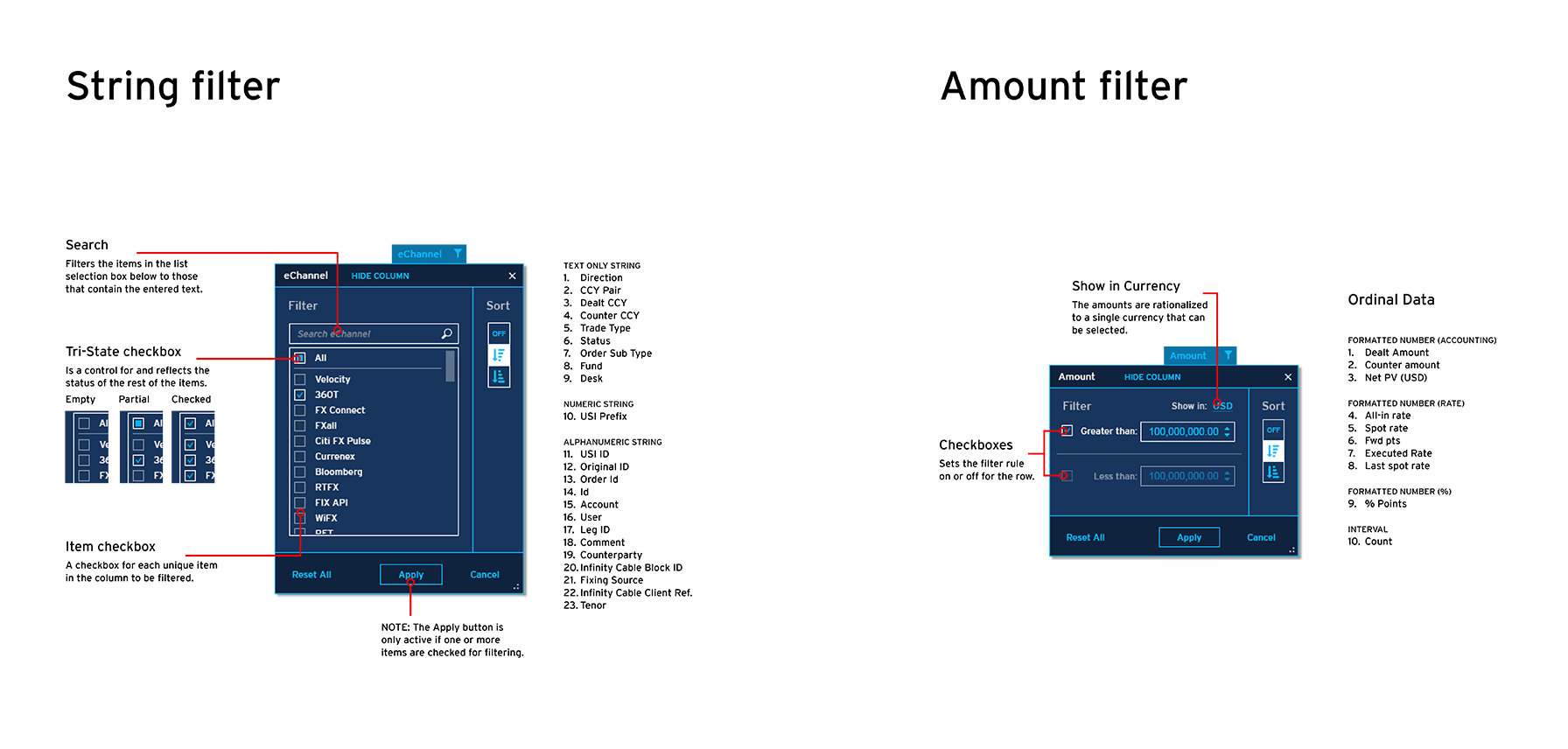
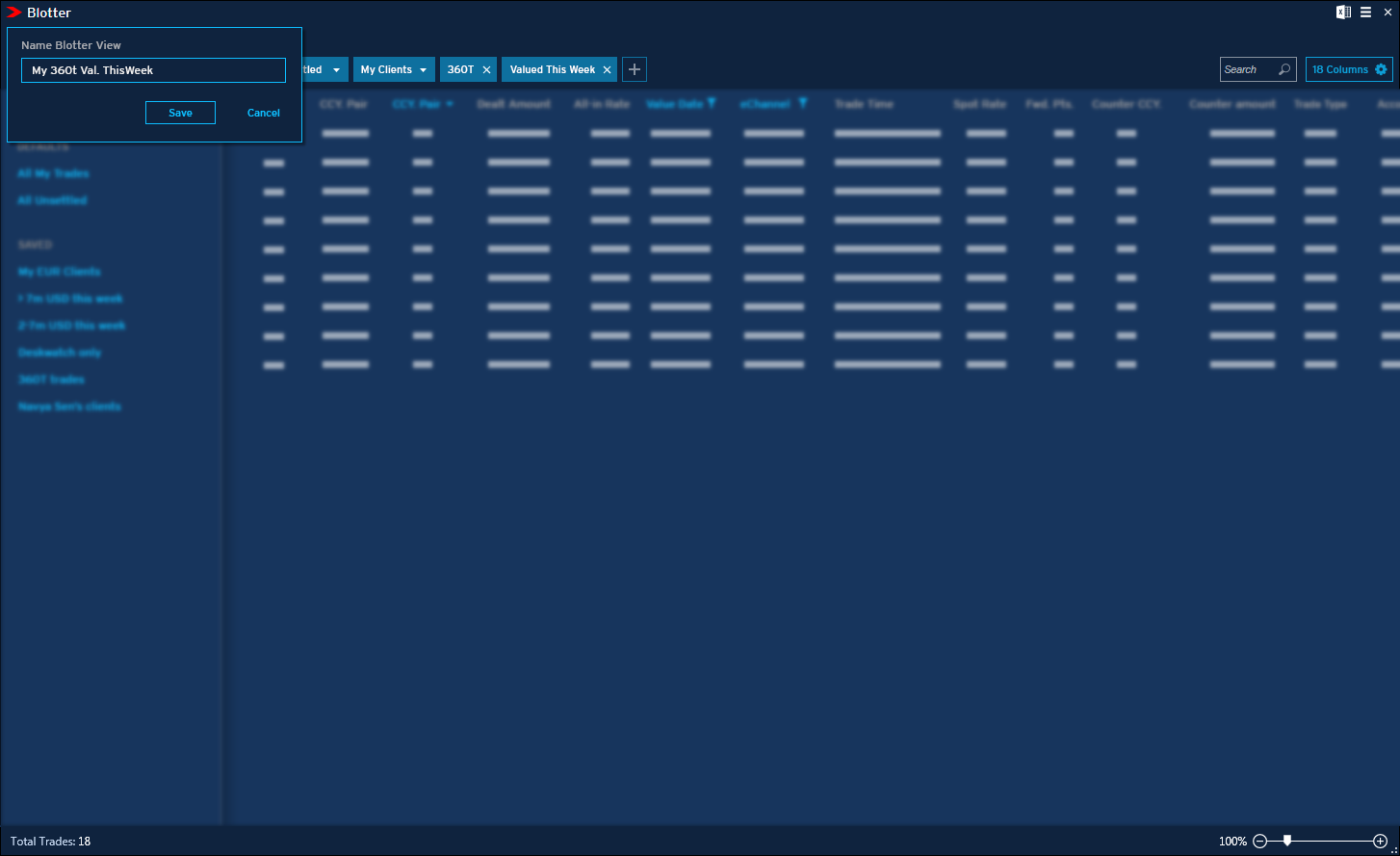
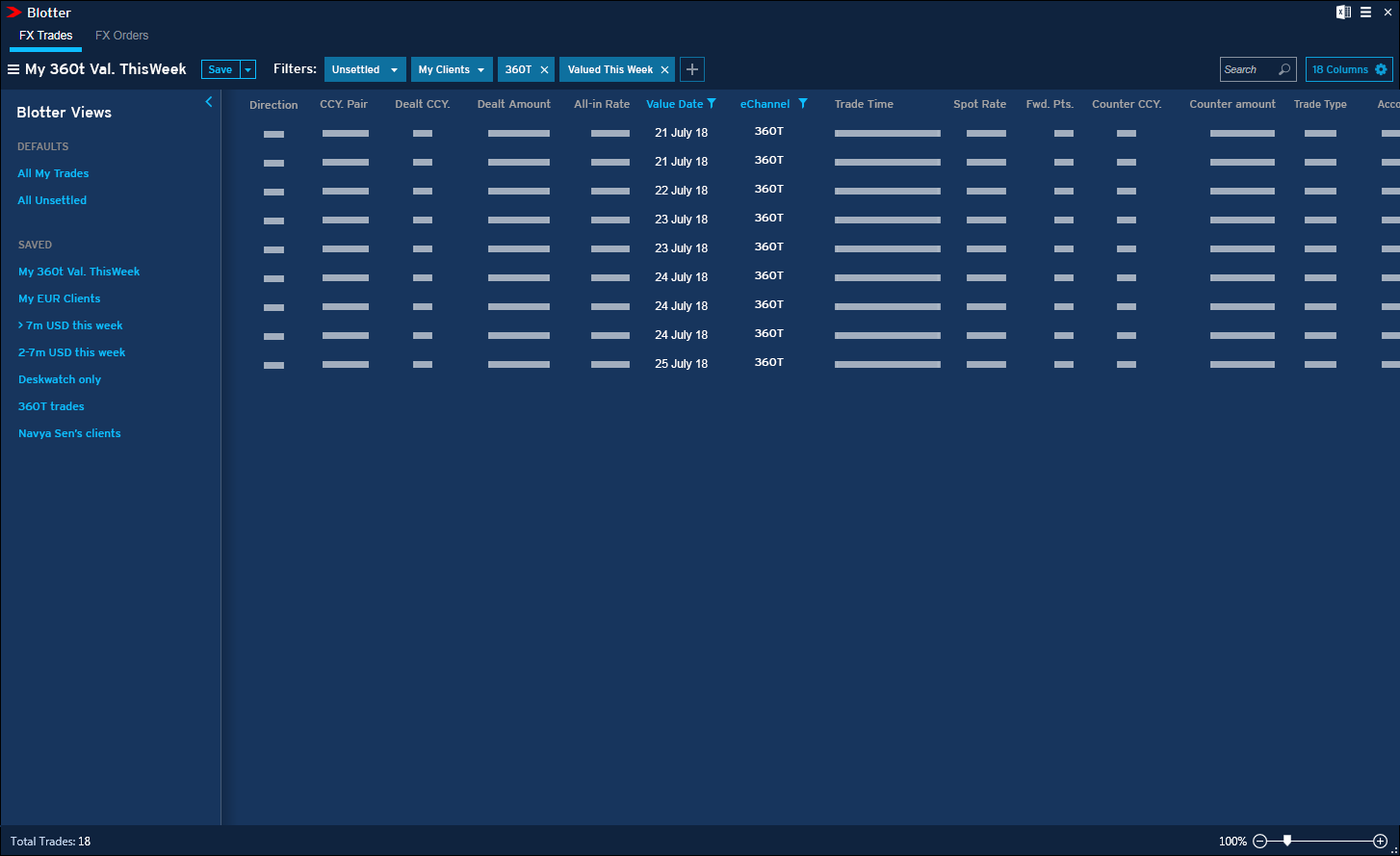
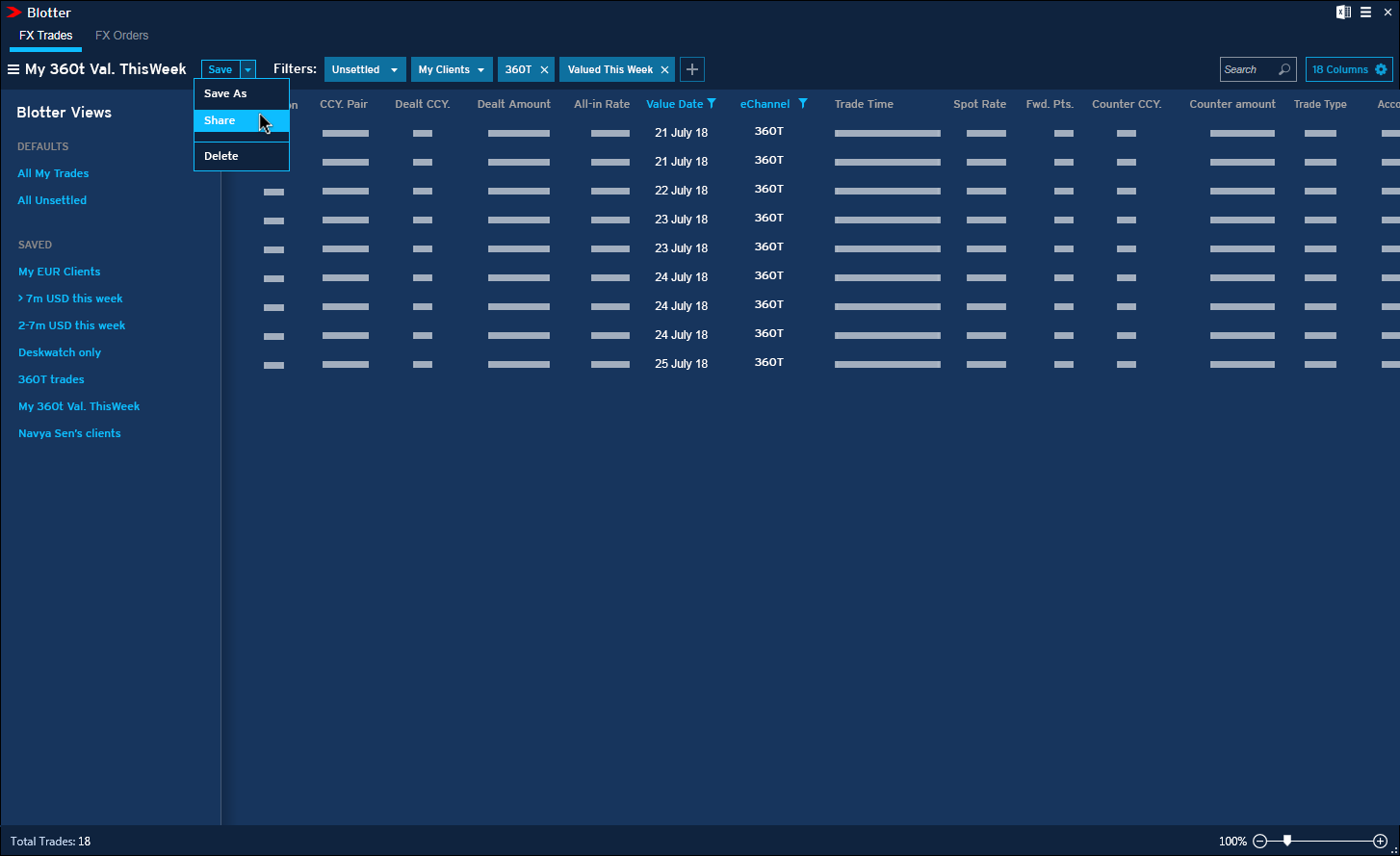
I decided to take this same 'help as many as possible' approach with the next project.
Read more